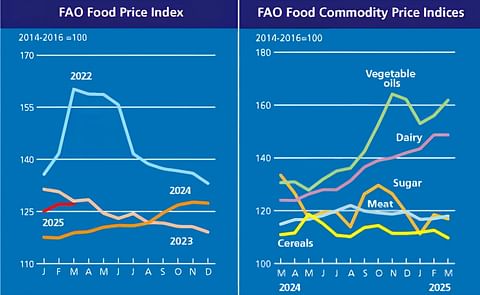Gary Rodkin, ConAgra Foods’ chief executive officer, said, “We are pleased with the performance of our Consumer Foods segment and our domestic Commercial Foods business, as well as the robust efficiencies we are generating across the company. Our Private Brands segment, however, is significantly below expectations; we are in the midst of implementing initiatives to improve execution to drive better performance starting in fiscal 2016.”
“Given my upcoming retirement from ConAgra Foods, I would like to thank all of our shareholders for their interest, encouragement, and support over the last nine years as we have significantly transformed the company. Over these years, our team made significant strides culturally, organizationally, operationally, and in the marketplace, generating consistently strong cash flow and putting us in a good position to capitalize on the next set of opportunities. I am very excited that Sean Connolly will be the company’s next CEO, and I look forward to watching the company’s progress under his leadership.”
Consumer Foods Segment
Branded food items sold worldwide in retail channels.
The Consumer Foods segment posted sales of approximately $1.8 billion and operating profit of $274 million, as reported. Sales declined 2% as reported, with flat volume, a 1% decline in price/mix, and 1% negative impact from foreign exchange.
- Brands posting sales growth for the quarter include ACT II, Chef Boyardee, Hebrew National, PAM, PF Chang’s, Rosarita, and Slim Jim. The company notes good performance in alternative channels given the focus on those opportunities this fiscal year.
- The packaging, assortment, product, and merchandising initiatives designed to improve the performance of Chef Boyardee, Healthy Choice, and Orville Redenbacher’s are underway and expected to drive continuously improving performance.
- Other brand details are provided in the written Q&A document accompanying this release.
Current quarter comparable operating profit also includes:
- $21 million of negative impact from certain index hedge losses, discussed in the Hedging Activities section of this document.
- $8 million of negative impact from changes in foreign exchange rates.
Commercial Foods Segment
Specialty potato, seasonings, blends, flavors, and bakery products, as well as consumer branded and private branded packaged food items, sold to foodservice and commercial channels worldwide.
Sales for the Commercial Foods segment were $1 billion, up 1% vs. year-ago period amounts, and segment operating profit was $145 million, 18% above year-ago period amounts, as reported. After adjusting for items impacting comparability in the current quarter and year-ago period, current quarter operating profit increased 4%.
Sales and operating profits for Lamb Weston potato products grew modestly, largely reflecting good domestic performance, a better quality raw potato crop, and good operating efficiencies; collectively, these more than offset lower international results. International sales and profits were weak, resulting from recent challenges facing quick-serve restaurant customers in key Asian markets and the slowdown in shipments from the West Coast port labor dispute. The West Coast port labor dispute was resolved toward the end of the company’s fiscal third quarter; the company expects slower than normal shipments throughout the remainder of the fiscal year due to the backlog created by the dispute. Profits for the rest of the Commercial Foods segment grew modestly, largely reflecting good efficiencies. Comparable segment operating profit also includes $2 million of negative impact from certain index hedge losses, discussed in the Hedging Activities section of this document.
Private Brands
Private brand food items sold in domestic markets. Note: On February 12, 2015 the company lowered the fiscal 2015 outlook for this segment.
Sales for the Private Brands segment were $1 billion in the quarter, down 5% from year-ago period amounts, reflecting 7% lower volume. Overall volume declines for most major product lines - pasta, cereal, snacks, condiments, and in-store bakery - more than offset some growth in nutrition bars.
The segment posted an operating loss of $(1.3 billion), as reported, due to an impairment of goodwill and other intangible assets. The impairment follows further deterioration in business results during the fiscal third quarter; as such, the profit outlook for this segment has been significantly reduced, and it will take longer than previously expected to manage through the challenges for this business. After adjusting for $1.3 billion of net expense from items impacting comparability (most of which are significant impairment charges) in the current quarter, and $21 million of items impacting comparability in year-ago period amounts, comparable operating profit declined 44%. Execution challenges and higher commodity costs, notably in durum wheat and snack nuts, played a significant role in the comparable profit decrease; continued volume declines across most categories, largely reflecting an intense bidding environment, also weighed on profitability. Pricing initiatives underway should help pass on the higher commodity costs over time. As previously discussed, the company is implementing changes focusing on four main areas designed to improve overall execution and customer relationships:
- Responsiveness to customer requests for product modifications, notably graphics changes,
- The speed of commercializing new items,
- On-time deliveries, fill-rates, and other core measurements of customer service, and
- The alignment between core functions driving margins, specifically sales and supply chain, to drive better cost management when input costs fluctuate.
This Conagra Foods News Release continues... Click here to continue reading.











